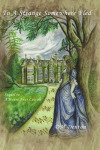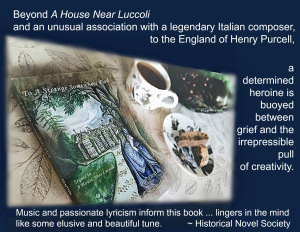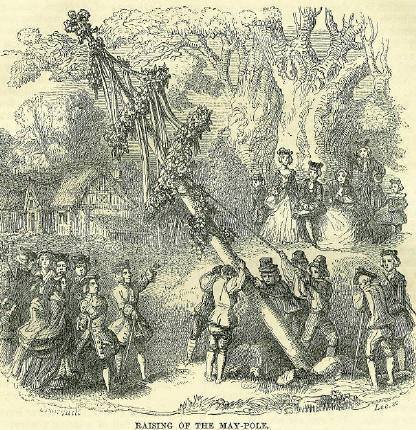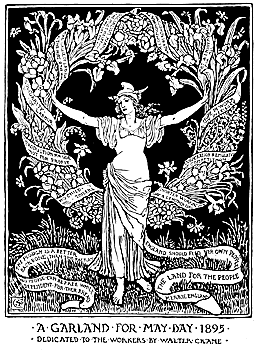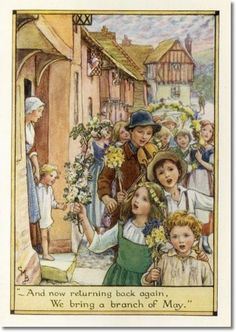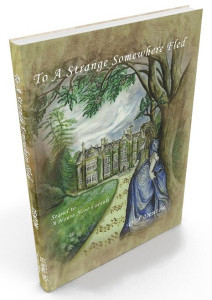D.M. Denton's Blog, page 19
July 30, 2016
The Very Closest Sympathy
On July 30th, 198 years ago, Emily Jane Brontë was born in Thornton, West Yorkshire, England.
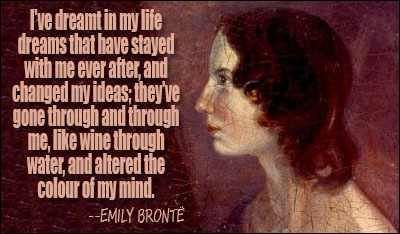
“I know you love to play Mendelson.” Anne grasped Emily’s hand, hoping she wouldn’t mind.
Emily endorsed Anne’s effort with a quick squeeze of her fingers. “I have to catch up with his Songs without Words volumes. I believe there are eight now. I only have five.”
Now she knew what it should be, Anne was glad there was just enough time to send away for Emily’s birthday present.
© 2016 DM Denton
Although my current work in progress is a novel focusing on her younger sister, Anne, Emily is essential to the narrative, whether they are together at Haworth, on an excursion to York, or separated for long periods of time.
Emily was an imaginative and liberating influence on dutiful, devout Anne, a constant and protective best friend who by example more than precept reminded her little sister to leave at least some of her spirit unfettered and even encouraged her to now and then step out of life’s responsibilities and live a little wildly, especially as mother earth beckoned her to.
For nature is constant still
For when the heart is free from care
Whatever meets the eye
Is bright, and every sound we hear
Is full of melody …
~ Anne Brontë, from Verses for Lady Geralda, 1836
Long after the Brontë sisters had died, Charlotte’s friend Ellen Nussey wrote in Reminisces of Charlotte Brontë that “(Emily) and Anne were like twins – inseparable companions, and in the very closest sympathy, which never had any interruption.”
What better way to enjoy time with Emily again than by reliving their childhood habit of wandering daily to meet only earth and sky, now with Keeper and Flossy, their dogs like themselves, despite contrasting physiques and personalities, discovering intrinsic similarities, especially the need to often escape the stuffiness and lack of possibilities indoors. For the dogs, too, the companionship of walks that took them west past tilting, spindly conifers and thorn bushes into the wind-swept vastness behind the parsonage, acknowledged the basic wildness of their natures and left no doubt they were more alike than different.
© 2016 DM Denton

From Pillar Portrait by Branwell Brontë
As children they formed an alliance apart from Charlotte, brother Branwell and the fictional world of Angria to invent their own imaginary kingdom of Gondal. The departure of Charlotte to Roe Head School meant they became even closer, but something more powerful than circumstance cemented their devotion: the innate ability to understand, unconditionally love, lighten, consolingly burden and so strengthen each other, to speak in silence as much as conversation, and, perhaps, most significantly, to create “the very closest sympathy” through the infinite sisterhood of their imaginations.
To Imagination by Emily Brontë
When weary with the long day’s care,
And earthly change from pain to pain,
And lost, and ready to despair,
Thy kind voice calls me back again
O my true friend, I am not lone
While thou canst speak with such a tone!
So hopeless is the world without,
The world within I doubly prize;
Thy world where guile and hate and doubt
And cold suspicion never rise;
Where thou and I and Liberty
Have undisputed sovereignty.
What matters it that all around
Danger and grief and darkness lie,
If but within our bosom’s bound
We hold a bright unsullied sky,
Warm with ten thousand mingled rays
Of suns that know no winter days?
Reason indeed may oft complain
For Nature’s sad reality,
And tell the suffering heart how vain
Its cherished dreams must always be;
And Truth may rudely trample down
The flowers of Fancy newly blown.
But thou art ever there to bring
The hovering visions back and breathe
New glories o’er the blighted spring
And call a lovelier life from death,
And whisper with a voice divine
Of real worlds as bright as thine.
I trust not to thy phantom bliss,
Yet still in evening’s quiet hour
With never-failing thankfulness I
welcome thee, benignant power,
Sure solacer of human cares
And brighter hope when hope despairs.

Emily Brontë’s fold-up writing desk and contents
Anne was less hesitant to being drawn into Emily’s simply lived yet creatively complex orbit; then Anne had grown up in it, been sustained by it, and found true friendship in it. She knew, welcoming the hope in that knowledge, that even as Emily seemed unsentimental, letting them go to their beds and disappointments and fears and useless efforts to change what couldn’t be changed, she was keeping a place for them by the fire of her imagination and fidelity.
© 2016 DM Denton

Haworth Parsonage, painted in the 1970s by DM Denton©
What was complicated for her sisters and brother was simple for Emily: there was no going back to working for little profit that left her essentially impoverished. Instead, she settled once and for all into the confinement that unleashed her fantasies, escaping change except as she grew taller and stronger and unapologetically herself. “I am as God made me,” Charlotte reported Emily’s answer to the “silly” girls at the Pensionnat who ridiculed her clothes, walk, thoughts, and habits. Anne couldn’t decide if such certainty made Emily saintly or blasphemous. According to Charlotte it did the trick in stopping the harassment, so it would seem an enlightened declaration after all.
Emily knew her place and stuck with it without being stuck, like a solitary tree on the moor, as violently content, shaped by the wind yet unyielding, in motion without leaving the spot she was rooted in.
© 2016 DM Denton
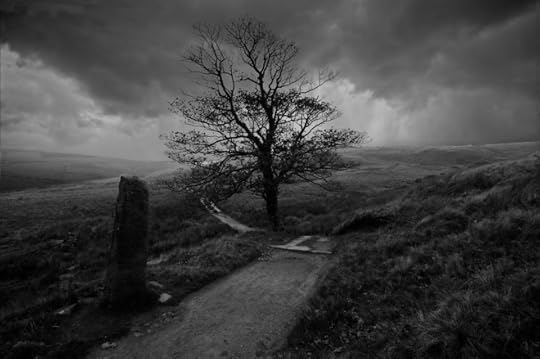

©Artwork and writing, unless otherwise indicated, are the property of Diane M Denton. Please request permission to reproduce or post elsewhere with a link back to bardessdmdenton. Thank you.
Filed under: Classic Writers, Excerpt, Famous Birthdays, Historical Fiction, Nature, Poetry, Women Writers Tagged: Anne Bronte, Charlotte Bronte, Ellen Nussey, Emily Bronte, Haworth West Yorkshire, Thornton West Yorkshire, Victorian Writers, West Riding Yorkshire








July 17, 2016
The Music of Friends: Cadences and Temperaments
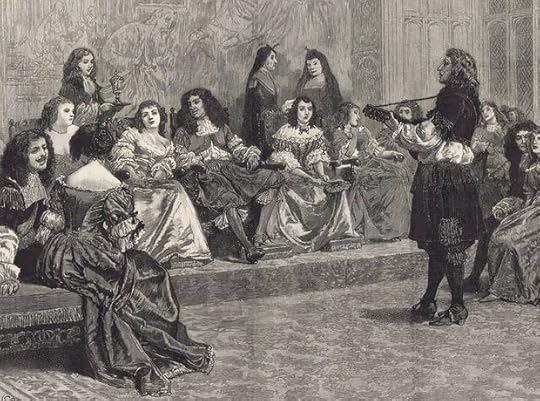
Image found at http://www.classicfm.com/discover/music/masters-queens-and-kings-music/nicholas-staggins/
The dais at the north end was designated for the music of friends. Roger worried over the personalities that would perform, a program created that listed them in alphabetical order except Master Purcell was acknowledged first to perform last. The chairs and music stands were set up with the expectation that they would be moved around to accommodate one complaint or other. Donatella tried to reassure Roger that musicians would always reconcile for the sake of the music, as she had seen Alessandro and Lonati do.
~ from To A Strange Somewhere Fled , sequel to A House Near Luccoli , which focused on the 17th century legendary Italian composer Alessandro Stradella.
The musical players
Henry Purcell (10 September 1659 – 21 November 1695)

Purcell by John Closterman
It was during my research for A House Near Luccoli that I came upon the claim, noted in the introduction to Purcell Studies edited by Curtis Price, that Henry Purcell had openly regretted Alessandro Stradella’s death and, because of the Italian’s “great merit as a musician”, forgiven his fatal indiscretions. True or not, it stirred me to somehow bring the celebrated English composer into Donatella’s continuing story, and on reading Roger North’s assertion that the high point of his musical experience was entertaining the ‘divine’ Purcell, I was even more inspired to do so.
Henry Purcell was as obscure a figure as Stradella in terms of how little about his personal life was recorded. Despite his legacy of being a uniquely English composer, he enjoyed and sometimes emulated the Italian style. He met his end at a younger age than Stradella and in a way that left as much conjecture as to why. Was it chocolate poisoning, the result of pneumonia brought on by being locked out of his house by his wife after a night of drinking, or ‘just’ tuberculosis?
He came from a very musical family. His father, who died when Henry was a small child and his uncle, who became his guardian, were members of the Chapel Royal. His brother Daniel was also a composer. Henry had been a child chorister; his earliest known work was probably completed when he was ten or eleven.
The English maestro enters the pages of To A Strange Somewhere Fled at age twenty-four, already appreciated for his celebratory, church, theatrical, instrumental, and incidental music, and overcoming the constraints of the English language to write songs that perfectly complemented the poetry they were inspired by. In 1683 he was an organist for Westminster Abbey and the Chapel Royal and about to publish his first collection and be appointed royal instrument keeper.
He was a man of sorrows as well as joy—of six children born to him and his wife, only two survived to adulthood—his copious creations defining him as the scarce accounts of his life never could.
The Italians
After the restoration of the British monarchy in 1660, Italian composers and performers arrived in England to find a welcome and work, some in the court of Charles II where lively, lavish, and constantly evolving entertainment was encouraged, while others visited for brief or extended periods or settled into being employed in or outside of London in churches and theaters and for private concerts.
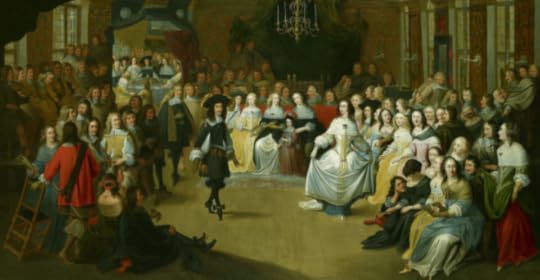
Charles II dancing at court. C.1660. Hieronymus Janssens (1624-93). Royal Collection Trust / © HM Queen Elizabeth II 2013
Carlo Ambrogio Lonati (c.1645–c.1712)
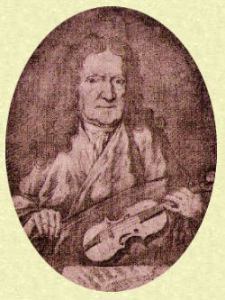 Il Gobbo della Regina, the hunchback composer, violinist, and singer who initially made an appearance in A House Near Luccoli, was probably born in Milan but little is known of his early life. Lonati first made friends, music and trouble with Alessandro Stradella while both were in Rome under the patronage of Queen Christina of Sweden, and went to Genoa ahead of Stradella where he also preceded him as impresario of the Falconi Theater.
Il Gobbo della Regina, the hunchback composer, violinist, and singer who initially made an appearance in A House Near Luccoli, was probably born in Milan but little is known of his early life. Lonati first made friends, music and trouble with Alessandro Stradella while both were in Rome under the patronage of Queen Christina of Sweden, and went to Genoa ahead of Stradella where he also preceded him as impresario of the Falconi Theater.
There is evidence that Lonati was in London—seen with a famous female singer—sometime between 1686 and1688. Ordered out of Genoa after Stradella’s murder in February, 1682, and leaving gaps in his activities and whereabouts for some time afterwards, it’s conceivable he traveled to England before the visit made notable because of the company he kept. His abrupt intrusion on Donatella’s new life was, in the course of writing To A Strange Somewhere Fled, as much of a surprise to me as it was to her.
Pietro Reggio (1632 -1685) (I couldn’t find a portrait of him)
There is much mystery surrounding the life of the “slovenly and ugly”, to quote diarist Samuel Pepys, composer, lutenist, and singer, Pietro Reggio, who was probably from Genoa as he was referred to as Pietro Reggio Genovese. He was employed in Stockholm by Queen Christina before her abdication and subsequent move to Rome where Stradella and Lonati encountered her. Eventually, Pietro traveled to France, and, if the inscription on his tombstone is accurate, to Spain and Germany. He had moved to England by 1664, where Pepys and another writer, John Evelyn, were entertained in very different ways by him. Whereas Pepys wasn’t overly impressed by “Seignor Pedro” who played the theorbo and sang Italian songs, Evelyn included Reggio’s singing in his description of the “rare music” he enjoyed after dinner one evening.
Reggio made his living in London for a time, performing and teaching, and also had associations in Oxford where he may have resided. His claim to fame is a collection of songs he published in 1680, mostly based on the verse of Abraham Cowley (1618 -1667) who was among the leading metaphysical poets of the 17th century.
Nicola Matteis (? – after 1714)

Nicola Matteis by Godfrey Kneller, 1682
Nicola arrived in England after 1670, apparently not interested in royal service or public appearances, because, as Roger North also indicated, he might have to perform with amateurs. Despite his resistance, his popularity grew in the 1670’s and 1680’s. He is given credit for having changed the manner of violin playing from the French to Italian style, publishing Ayres for the Violin that provided detailed bowing instructions and directions for tempo and ornamentation. Still, his compositions were difficult and many were discouraged in their efforts to play them. John Evelyn was among those who praised Matteis’ vigorous style that made his performances so memorable.
Various Italian, English, Scottish, and French Musicians
Bartholomeo Albrici (1634 – ?), a composer native to the seaport of Senigallia in the province of Ancona in central Italy, taught and played the harpsichord. He spent time in Sweden with his brother, Vincenzo in service to Queen Christina, and traveled with him and their singer sister Leonora (1640’s – 1700?) to London in 1662 where they all were involved in the King’s Musick. Leonora was married to Matthew Battaglia (1640? – 1687), a musician to the Duke of York, later James II. Giovanni Battista Draghi (ca. 1640 – 1708) was an Anglo-Italian composer and organist invited to London by Charles II to help establish an opera house. That project was unsuccessful, but Draghi (nicknamed “Drago”) found other ways to contribute to the music of the court and remained in England for the rest of his life.
Besides Henry Purcell, other English musicians make themselves known in To A Strange Somewhere Fled, including Henry Aldrich, church musician, Canon of Christ Church and eventually Vice-Chancellor of Oxford University; Henrietta Bannister, wife of John Bannister “the elder” and music tutor to Princess Anne, daughter of James II; Robert Carr, viol player; Charles Coleman “the younger”, possibly a lutenist and theorbist; Thomas Eccles, a violinist who was said to have played in taverns; Thomas Farmer, violinist at the Duke’s theater in London and in service to Charles II and James II; William Gregory “the younger”, lyra viol player, composer and member of the King’s Musick and the Chapel Royal; William Husbands, organist at Christ Church, Oxford; and William Turner, composer and singer who served at Lincoln and St. Paul’s Cathedrals, the Chapel Royal and with the King’s Private Musick.
Also helping to add a flourish to the midsummer concert in To A Strange Somewhere Fled were Scottish composer and singer John Abell, Gentleman of the Chapel Royal, whose English songs showed Italian influence; and French composer and recorder player, Jacques Paisable (“Peasable” as he was mockingly referred to), who performed at the Drury Lane Theater and married actress and singer Mary “Moll” Davis after she was dismissed as Charles II’s mistress—with a lavish pension and house as a parting gift—when the nubile Nell Gwyn came on the scene.
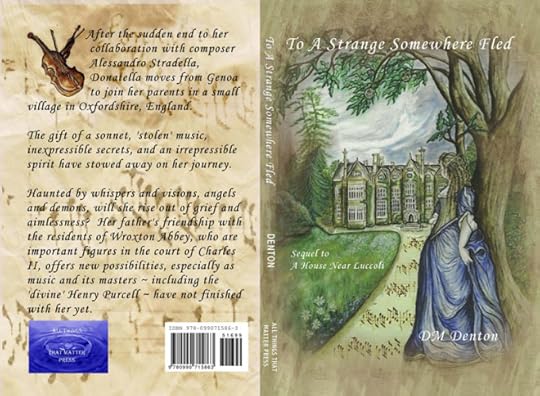
Cover – back and front – illustrations by DM Denton
“Oh, I must hear Stradella.” Master Purcell swung out his arms as though into an embrace.
“Let me choose.” Mama was irresistibly devious, lifting page after page.
“Something lighthearted and melodious, if you please.” The young composer’s arms dropped. “As I feel sure he would’ve wished to entertain us.”
“It is here.”
“No, Mama.” Donatella realized her mother’s discovery and an ache in her stomach.
Master Purcell was soon performing the selected music with his eyes and a delicate finger in the air. “Will you sing it, mistress?”
“Yes, yes. With my daughter, Donata, as she is shy. It’s her specialty.”
“Really?” Master Purcell screwed his mouth, skeptical but interested.
“In fact, Maestro Stradella might’ve written it for her.”
“Oh, no, Mama. In Rome, before—”
“You knew him?” Master Purcell motioned for Lonati who had been listening without comprehending what should have provoked him into having his say. “I would like to hear this, Carlo. I don’t see a bass viol, but Reggio can improvise. The ladies will sing. There’s only one score.”
“I know it by heart.” Donatella blindly stepped back into her mother’s arms.
“Of course you do, darling,” Mama’s soft voice blew into her ear.
“Ah,” Purcell was watching them closely, and then turned back to Lonati, who was explaining the music to Reggio.
~ From To A Strange Somewhere Fled, published by All Things That Matter Press.
Keeping true to A House Near Luccoli, much of the foundation of this novel relies heavily on music as expression. The cadences and temperaments of compositions are reflected in Denton’s pacing as well as her confidently executed freedom of narrative … revelations are made, characters introduced, and emotions uncovered with unexpected swells and surges of expression.
~ from review by Casee Marie Clow, Literary Inklings
This plot is as much about music as Donatella’s first story, which covered the time when she was a copyist for Stradella, but in this novel Donatella’s role as a performer is emphasized … Denton writes with a lyrical style which swells, fades, and swells again, creating a perfect setting through its tone as much as its meticulous description. Her words pull her readers to 17th century England like music from that era.
~ from review by Steve Lindahl, author of White Horse Regressions
… the secrets and the rhythm within these pages lifts the reader to appreciate the subtle yet daring intricacies of music, passion and life in 17th century England.
~ from review by Martin Shone, author of Silence Happens and Being Human
What an inspired and informed imagination to portray the young Henry Purcell. The author’s descriptions of music, particular musicians, and musical performances make this book a work of art itself. To A Strange Somewhere Fled is a virtuoso performance.
~ from review by Mary Clark, author of Tally: An Intuitive Life and Covenant
A well-researched history of the 17th century music loved by the Italians in Genoa, and now in England, where well-known musicians such as Henry Purcell and other notables are popular. What I found most valuable in these two books were the exceptional scenes with composers and performers of the day, described in details that keep the reader deeply involved in that age.
~ from a review by Jean Rodenbough, author of Rachel’s Children, Surviving the Second World War
DM Denton Book Launch Pages: Book trailers, Synopsis, Reviews, Buy Links, and more all in one place!
or at amazon.com
or at amazon.com
(This post was first published in July, 2015. I have made a few adjustments to it. Hope it is enjoyed again and for the first time!)

©Artwork and writing, unless otherwise indicated, are the property of Diane M Denton. Please request permission to reproduce or post elsewhere with a link back to bardessdmdenton. Thank you.
Filed under: Baroque Music, Chamber Music, Excerpt, Historical Fiction, Novel Tagged: 17th Century Composers, 17th century Italian Musicians, A House Near Luccoli, Alessandro Stradella, All Things That Matter Press, Charles II, Henry Purcell, To A Strange Somewhere Fled, Wroxton Abbey








July 9, 2016
Historical Novel Saturday: Review: A House Near Luccoli by DM Denton
Even after almost four years, it’s so thrilling to know that my novel A House Near Luccoli is still finding new readers. Thank you to Christoph Fischer, who is a very fine writer himself, for taking the time and interest in engaging with the novel and writing such a beautiful review. While you’re visiting his site, please take a look at his excellent publications.
A most beautiful and engaging novel about Baroque musician Alessandro Stradella. Mixing fact with fictional elements we get to witness this colourful and fascinating subject in his professional and private life.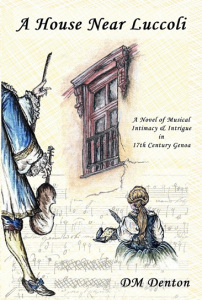
The flow of the writing is smooth and pulled me in from the first chapter – something that few historical novels master. The prose is wonderful and the pace just perfect.
There is a great story to tell about this man and the music world of the 17th Century. I was amazed at how much I enjoyed this novel, being not that familiar with the Italian Baroque ‘scene’. The author has done immaculate research and fills the pages with great details without overloading it.
Donatella, the other main character of the book, is equally well drawn and interesting. This is a real pleasure to read, all the more when you read the notes about the man and the author…
View original post 269 more words
Filed under: Baroque Music, Books, Historical Fiction, Novel, Reading, Reviews Tagged: A House Near Luccoli, Christoph Fischer Books, DM Denton author-artist








July 6, 2016
As a Lotus Flower

Hardheads
I was told I must
celebrate
in some kind of obvious way,
because I prefer to hide in the wonder
of my life,
to stay quiet and even rather
still,
To drink the nectar
of solitude
instead of more company
than is good for me,

Cuckoo Flower
like too much wine
that would make me unrecognizable
to myself.
My thirst is for
the clarity of my thoughts,
the true rhythm of my heart,
and the wakefulness of my soul.
Although, in a way, I do seek
drunkenness, by

Heartease
overindulging in the softness
of my cats and their doggedness, too –
the same to be said about nature
as it intoxicates my life with meaning
and escape from meaning,
and the passions that make me teeter
on the edge of becoming unrecognizable
to everyone but myself.
“As a lotus flower is born in water, grows in water and rises out of water to stand above it unsoiled, so I, born in the world, raised in the world having overcome the world, live unsoiled by the world”
~ Buddha

Copyright 2012 by DM Denton (I know that this painting depicts water lilies not lotus flowers, but it was born of a very special birthday memory and, I believe, reflects the sentiments of my poem and the Buddha quote).
On my birthday I make a toast of
Blessings
Peace and Love
For All

Copyright 2016 by DM Denton
 ©Artwork and writing, unless otherwise indicated, are the property of Diane M Denton. Please request permission to reproduce or post elsewhere with a link back to
bardessdmdenton
. Thank you.
©Artwork and writing, unless otherwise indicated, are the property of Diane M Denton. Please request permission to reproduce or post elsewhere with a link back to
bardessdmdenton
. Thank you.
Filed under: Art, Nature, Poetry, Writing Tagged: Birthdays, Buddha Quote, Cats, Heart, Lotus, Passions, Peace, Quiet, Solitude, Soul, Wonder








June 19, 2016
Midsummer Music and a Little Madness

Copyright 2012 by DM Denton
Here’s the summer, sprightly, gay
Smiling, wanton, fresh and fair,
Adorned with all the flowers of May,
Whose various sweets perfume the air.
from the opera The Fairy Queen, Music by Henry Purcell, Libretto by ‘anonymous’,
based on Shakespeare’s A Midsummer Night’s Dream
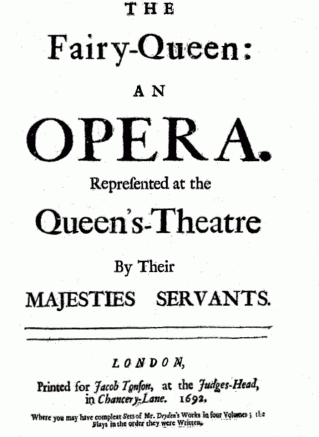
Title page of original printed edition
Midsummer celebrations take place around the summer solstice (in the northern hemisphere, about June 21st). In England, from the 13th century, Midsummer’s Eve, also called St. John’s Eve, was celebrated on June 23rd as the following day marked the feast of John the Baptist. In the 14th century John Mirk of Lilleshall Abbey, Shropshire, left us this insight: “At first, men and women came to church with candles and other lights and prayed all night long. In the process of time, however, men left such devotion and used songs and dances and fell into lechery and gluttony turning the good, holy devotion into sin.“
In rural England, large bonfires were built and this practice was called “Setting the Watch”, a reference to the idea that fire would keep the evil spirits away. I used this phrase to title the final pages of my novel, To A Strange Somewhere Fled . You’ll have to read the novel to find out why, but I will offer a little teaser:
The Captain greeted someone coming from the Abbey grounds who raised a lantern. “Good evening, Tobias. The devil’s not afoot tonight, I trust?”
It was obvious he had upset the old man, who took his light away as quickly as he could.
In the novel, the Midsummer’s Eve celebrations begin with the music of friends, a concert featuring some of the top musicians – English, Italian, and French – of late Restoration England, many employed in the Court of Charles II. Francis North (1st Baron Guildford; Keeper of the Great Seal, 1682 – 1685) and his brother Roger North (King’s Counsel, 1682 – 1684; Solicitor General to the Duke of York 1684; Attorney General to Queen Mary of Modena 1686) host the musical evening in and around their Oxfordshire country home, Wroxton Abbey.

Wroxton Abbey, Copyright 2015 by DM Denton
More excerpts, Maestro, please …

Roger North, 1651 – 1734, English lawyer, biographer, and amateur musician
On the day of midsummer’s eve the Great Hall gleamed with polish and high sunlight, its woolen rugs taken up and flagstones scrubbed, regal-red upholstered chairs borrowed from Broughton Castle arranged in two short-rowed sections separated by an aisle wide enough for layers of skirts. The fireplace was filled with a display of larkspur, lilies, gilliflowers, ferns and branching honeysuckle picked and presented by Tobias, and arranged by Lidia under his fussy direction. Tobias also brought sweet peas from “his most successful crop ever” to make nosegays for the ladies while single blooms would suffice for the gentlemen and their buttonholes. The flowers were kept fresh by being kept cold along with the sorbet made possible because of the ice-house Roger had been experimenting with.
The dais at the north end was designated for the music of friends. Roger worried over the personalities that would perform, a program created that listed them in alphabetical order except Master Purcell was acknowledged first to perform last. The chairs and music stands were set up with the expectation they would be moved around to accommodate one complaint or other. Donatella tried to reassure Roger that musicians would always reconcile for the sake of the music, as she had seen Alessandro and Lonati do.
A month and a half earlier, they had walked through the Abbey to consider the layout of the event and how many guests could be accommodated. Some would need to stay overnight. Roger formally introduced Donatella to the kitchen and household staff who hardly looked willing to take orders from her. Most of the planning took place in the garden parlor where Mama had recovered from fainting and Donatella had English lessons. It had almost completely evolved into a study and library, fitted with more shelves that still weren’t enough to prevent the stacking of books on the floor and deep windowsill. Its pretty couch, once for posing and swooning and dying, was just another place for the unmanageable range of Roger’s interests.
“The … domestics must … curse … you,” Donatella struggled to find the English words.
Roger wasn’t upset or apologetic. “They know better than to disturb anything in here.”
The dust that caused her fits of sneezing and Roger to open the window even though it wasn’t warm enough to confirmed no one had cleaned in there for quite some time.
“This is a little madness, don’t you think?” Roger was full of ideas for the concert, including a bonfire for the villagers behind the Abbey with a table set out on the terrace for sweetmeats and cider.

Old Depiction of the Great Hall, Wroxton Abbey
By six o’clock sunshine defined the high heraldic windows at the west end of the dais and streamed down upon it. The crowd was steeped in musky fragrance, clashing colors, watchful flirtation, conversational anticipation, and consuming more drink than food, seemingly oblivious to the performers as they tuned up. Outside behind the house, after a rowdy parade, villagers enjoyed the chance to feast at the Norths’ expense. They danced to their own fiddlers and waited for the sun to set and flames to rise up from the mountain of logs and brash so high a ladder had been needed to put the last bundles on top. Sir Francis wondered where his son and John Lely were, Anne’s shoulders rising and falling with either disapproval or envy for her brother’s ease of escape. Donatella could only imagine the boys preferring to play according to their age rather than privilege by rolling down banks, climbing trees, throwing stones and even wading in the fish pond, which Roger should not know about. Fortunately, he was preoccupied with Master Purcell setting the stage with an eye and ego for making sure he was positioned front and center.

Henry Purcell, 1659 – 1695, English Composer
Master Purcell nodded to Sir Francis who wasn’t quite invisible in the shadows under the gallery, and then to Roger, who was much closer to him.
“To my hosts, benefactors, and dear friends, I thank you for opening your doors and purses to my music and self, and especially for giving me a reason to escape the tyranny of London.”
There were gasps and murmurings that Master Purcell enjoyed for a few moments. “I refer only to the courtly chains of service I put upon myself.”
It was as if his shocking and relieving confession was rehearsed when there was a playful burst on the recorder from “James Peasable” as Master Purcell announced him.
“Jacques Paisible,” the young Frenchman corrected, without a hint of hostility.
“How’s Moll, Jack? Did she have another engagement? Perhaps, at Whitehall?” The theorbo player mocked him.
Paisible’s face tightened. “No. She’s at home.”
“On Suffolk Street?”
“Yes.”
“Well, within reach of … Whitehall.”
With a little stamp of his right foot, Master Purcell allowed nothing more to be said except as he introduced “the conspirators in making music worth listening to.”
Thomas Eccles and Thomas Farmer stood to attention with their violins in position to be played at a moment’s notice, but Matteo Battaglia hadn’t yet picked up his. Robert Carr and William Gregory straddled their viols. With the theorbo resting against his chest and reaching off to one side with his arm, Charles Coleman also sat, as did John Abell, encircling his lute. Jacques Paisable answered his second introduction with another seeming impossible flourish on the recorder, while Bartolomeo Albrici and Giovanni Battista Draghi exchanged vulgarities in the Italian style at the announcement that they would take turns on the harpsichord.
Master Purcell waved the singers forward and kissed the hand of Leonora, “an angel who could not leave England again, even if Matteo must go without her.” He showed more reserve with Henrietta Bannister, the wife of the late John and mother of the younger, and called William Turner an accomplished composer himself, a fine countertenor, and true gentleman of the Chapel Royal.
Master Purcell bowed to them all, the back of his wig matted and his coat creased, the ribbons undone on the bottom of his breeches, evidence of a mend here and there in his hose, and his ankles leaning out due to the wear on his shoes. As he straightened, his arms lifted up until his hands were close together above his head, reminding Donatella of a priest celebrating the Eucharist, his congregation silent in preparation for the miracle they were about to receive.
His arms fell and the strings began with a pavan in G minor that was reflective and hesitant but gradually rose to the occasion and opened the mood for what came next. A chacony did, in the same key, pulsating with bowing stokes up and down and brief pauses in slowly intensifying obstinato. The bass dropped out and came back in, its rhythm processional and melody clear with fleeting variations, its development quickening and relieving while weaving possibilities into a conclusion that couldn’t be more simple.
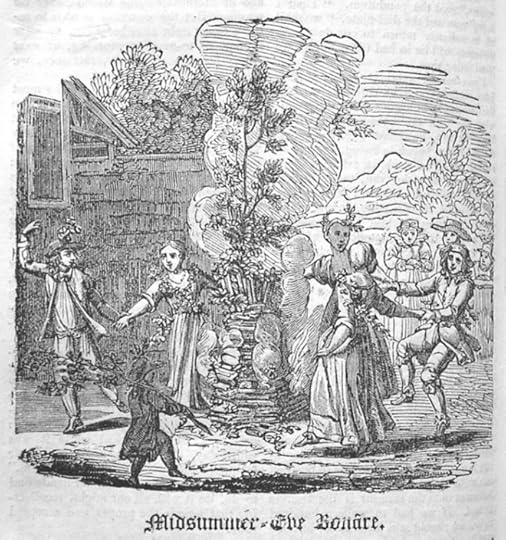
Donatella felt cold despite the very warm evening and bonfire that, kindled with conifer brash, eagerly blazed up through the center of precisely piled hazel, oak, alder, holly, willow, and ash logs as Roger had recommended for steady burning and tradition. By the time she was abandoned to the crowding on the terrace, the inferno was collapsing inwards to grow higher and higher. It was unapproachable by those with trailing silk and satin, flounces of lace and dangling ribbons, and anything else about their appearances to consider. A beacon to the villager revelers, it illuminated their senses, superstitions, and faith as their children played too close to it. Old and young alike joined in its leaping twirling dance, their voices also crackling, fiddlers and drummers making music that had never been written down. Some carried cressets lit from the fire and ran close to the ladies and gentlemen on the terrace to terrify or tempt them.
All excerpts from To A Strange Somewhere Fled, published by All Things That Matter Press, are copyrighted (2015) by DM Denton
I hope your summer is full of joy and peace and love!

LEAD Technologies Inc. V1.01
Artwork and writing, unless otherwise indicated, are the property of Diane M Denton. Please request permission to reproduce or post elsewhere with a link back to bardessdmdenton. Thank you.
Filed under: Baroque Music, Early Music, Excerpt, Fiction, Historical Fiction, Novel Tagged: A Midsummer Night's Dream, Fairleigh Dickinson University Wroxton College, Henry Purcell, Midsummer's Eve, Shakespeare, St. John's Eve, Summer Solstice, The Fairy Queen, Wroxton Abbey








May 28, 2016
The Pen Laid Aside – For ever
No, not mine.
Today marks the 167th anniversary of the death of Anne Brontë in her beloved Scarborough on the North Yorkshire coast, England. The youngest sister of Charlotte and Emily Brontë, Anne was the only sibling to die and be buried away from their home in Haworth, West Yorkshire.
Her last words “Take courage” were to her sister Charlotte, who had already suffered the loss of her brother, Branwell, and sister Emily the previous September and December.

Anne Bronte’s Gravestone in St. Mary’s churchyard, Scarborough
As some of you may know, my latest work-in-progress is a novel about Anne Brontë, which was conceived as a journey off the beaten path of how her life is usually presented (when not ignored in the Brontë legacy). It is coming along very well and I hope to have the 1st draft finished within a couple of months.
I have been delighted to discover some great biographies about Anne that have proved invaluable to writing about her, especially Winifred Gerin’s exquisitely written book Anne Brontë, A Biography, first published in 1957. Another enlightening resource has been Edward Chitham’s A Life of Anne Brontë, first published in 1991.
Recently, a brand new biography In Search of Anne Bronte by Nick Holland was released. Besides being an author, Nick is an active member of the Brontë Society and keeper of the website and blog annebronte.org.
To mark Anne’s death my review of this book is below. You can also read it on amazon and Goodreads.
 5.0 out of 5 stars
5.0 out of 5 stars
Excellent Biography about a Remarkably Intelligent, Caring, Courageous, Beyond-her-time Woman
May 7, 2016
Format: Hardcover
My first encounter with the Brontës began at the age of ten or eleven when my mother gave me her beautiful 1946 editions of “Wuthering Heights” and “Jane Eyre” with columned text and exquisite engravings by Fritz Eichenberg. Eventually, I discovered there was another author-sister in the family, the youngest, Anne. From the multitude of documentaries about the Brontës, movies based on Charlotte’s and Emily’s books, and even, as an English major, classic literature courses in school, it was all too easy to overlook Anne’s presence in and influence on literature and the Brontë story.
A travesty, indeed!
Quietly enduring, persevering, unpretentious people often don’t come across as accomplished or potentially so. As a writer myself, I’m constantly drawn to creative figures in history that somehow and for whatever reasons have been set aside as less important and appealing than others. In researching my own Anne Brontë project, I’ve been surprised and delighted to discover so many others motivated to make Anne’s more intimate acquaintance. Following in the footsteps of Winifred Gerin and Edward Chitham, Nick Holland, an active member of the Brontë Society, has turned his fascination with Anne into an eloquent, informative, affecting, and perceptive biography that like his blog, annebronte.org, is another important step in bringing her out of disregard and misconception.
There will always remain secrets about Anne Brontë. All of her childhood writings and most of her letters have been lost. Mr. Holland has drawn from documented facts, the interpretations of other biographers, diary papers Anne and Emily wrote, Charlotte’s letters and recorded remembrances, but, also, essentially, Anne’s verse and prose writing that offer many clues to who she was, why she wrote as she did, and how she lived and died.
In Search of Anne Brontë is a sensitively formed account of her life, the book’s slow, reflective, and conscientiously investigative style apropos to Anne’s character, intellect, and spirit. There is clarity and affection in its pages, an engaging examination of how her surroundings and relationships shaped, challenged and inspired her, a confirmation of her gentle, introspective, spiritual, mediating character. Anyone who gets to know Anne Brontë as thoroughly as Mr. Holland has, realizes there was so much more to her, including a strength and individualism that took her away from Haworth and family to do her duty; which resulted in the channeling of her expanded awareness and experience into the honesty, prowess, and courage of her poetry and novels.
As Mr. Holland and other Anne Brontë aficionados appreciate, she was endearing for her quiet, sweet, kind manner, but going in deeper lifts her out of the shadows cast by her more well-known and dramatic sisters and brother and the often over-emphasized isolation and tragedy of their lives. Yes, Anne’s life was brief and at times difficult, a struggle with loneliness, self-doubt and loss, but also full of imagination, love, music, nature, friendship, freedom and discovery. It was, after all, fully lived. If you haven’t read any other biography about Anne Brontë, this one is a perfect way to be introduced to her. If you have, you will, as I did, find Mr. Holland’s fresh perspective, devoted understanding and intense respect for his subject make you even more appreciative of what a remarkably intelligent, caring, brave, and beyond-her-time woman and writer she was.
DM Denton
I enthusiastically encourage you to visit Nick’s website/blog for his latest reflection on the death of Anne Bronte, and while you’re there please peruse other posts that intelligently and lovingly celebrate her life.
Last stanza from Last Lines, Anne Brontë’s final poem:
Should death be standing at the gate,
Thus should I keep my vow;
But, Lord! whatever be my fate,
Oh, let me serve Thee now!
Note by Charlotte Brontë:
“These lines written, the desk was closed, the pen laid aside – for ever.”

Anne, from a group portrait by her brother Branwell
And to end, here is a short excerpt from my WIP©:
For years Anne hadn’t been home on her birthday. Not that it mattered. Emily always baked an oatmeal and treacle cake for her a couple of days ahead of the teatime designated for its consumption in order for it to be stored in a tin and softened. Anne could only wonder at Emily’s talents with cooking and housekeeping, admitting, at least to herself, that her nearest sister not only had more opportunity but inclination to learn from Tabby and even uncertain Martha.
“I’ll allow no one to refuse a piece of Annie’s parkin,” Emily would insist, although she was usually loathed to try to make anyone do anything. That year, like others, she was determined that hour or so be a happy memory for her “bet’r sen”, even given to singing some lines from an old ballad supposedly from the time of Robin Hood. “Now the guests well satisfied, the fragments were laid on one side when Arthur, to make hearts merry, brought ales and parkins and perry.”
“When Timothy Twig stept in, with his pipe, and a pipkin of gin,” Branwell continued with the song beyond Emily’s intention.
Anne briefly escaped his devilish behavior to take a piece of cake out to Tabby in the back kitchen, who because of being easily wearied and hard-of-hearing hadn’t stirred from her nap in an unforgiving straight-backed chair positioned too close to the draught from the back door.
“Where’s your shawl?” Anne found it draped over the handle-top of a broom leaning against a wall.
“Eh? What’s yer fus’n?”
Anne’s gentle laying of the loosely-knit shawl around Tabby’s shoulders and, especially, what was on the plate put into her hands, quickly quelled the old servant’s complaining.
“Ah, my angel-lass.”
Copyright 2016 by DM Denton©
 Artwork and writing, unless otherwise indicated, are the property of Diane M Denton. Please request permission to reproduce or post elsewhere with a link back to bardessdmdenton. Thank you.
Artwork and writing, unless otherwise indicated, are the property of Diane M Denton. Please request permission to reproduce or post elsewhere with a link back to bardessdmdenton. Thank you.
Filed under: Classic Writers, Excerpt, Historical Fiction, Reading, Reviews, Women Writers, Writing Tagged: Anne Bronte, Bronte Society, Haworth West Yorkshire, In Search of Anne Bronte, Nick Holland, Scarborough Yorkshire, Writer's Death








May 23, 2016
A Sip of Limonata…
… and A House Near Luccoli
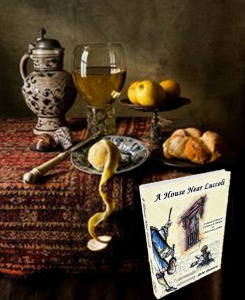
Besides the folder of music, Donatella carried up a tray of limonata and anise cake, another of Nonna’s suggestions.
“At last.”
She smelled a candle burning, but it didn’t light the short hall. In the main room a window was open, with the settee moved closer to it, Signor Stradella a masterpiece resting there. One dark leg was stretched and falling over the back of the couch, a ruffled hand on its knee; the other bent to the floor and, even without stocking and shoe, appeared ready to walk away. He had also undressed to his shirt still buttoned high and wrinkled softly because it was made of the finest linen. A slight breeze blew his hair over his face. As he realized her burdened entrance, his right shoulder pillowed a half-smile and he reached out lazily.
“Did you bring bavareisa?”
“What’s that?” She clumsily laid the tray down on the gray marble hearth, not wanting to bend with her back to him.
“Cioccolata and caffè.”
“We don’t have coffee. It’s too expensive.”
“I’ll pay for it.” He swung into sitting, hunched and rubbing his neck. “I’m getting one of my headaches.”
“It’s the weather.” Donatella offered him a drink.
He accepted it, the tips of his fingers friendlier than they should have been. “A veil over the sun, like a woman at Messa.”
He tasted it. “Ah. Fresco.”
“Squeezed this morning. Nonna says it’s good for clearing the voice.”
“Cara Nònna.” He raised his glass, then emptied it with a kiss on its rim. “I’ve heard she was very rebellious. I wonder you didn’t become the same.”
“I wasn’t meant to.”
“How do you know?”
“Because it didn’t happen.” She was still holding the folder.
“I believe that’s why you’ve come?”
He moved slowly to make space on the table where his inventions were layered and sprawled, so many at once. By the time she placed the copy there he was sitting once more, leaning forward, his head in his hands.
“You can let me know.” She felt intrusive. “I’ve never seen you at Maddalena before.”
He rose, admitting his rudeness. “I was testing the sound for a wedding there.”
“It must be a special one.”
“Ah. I’ll make it so.” His teeth showed. “Così.” He leaned over the table, the side of his face long and angled, eyelashes still and mouth taut, the first page flipped for the second, the second for the third, every one after that as unremarkable.
“I’m untrained.”
He looked at the first page again, his index finger, chin, and muted hum following the stanzas. “Ah. You see. Just a little more space here and this note a little higher, the words not quite aligned.”
Her hope of impressing him was gone.
“No, no.” He showed sensitivity to being misunderstood. “Even my last copyist, a priest, cursed my sloppiness.”
“I did my best.”
“Ah. Anyway, there are many arie in the serenata, besides duetti and trii and sinfonie. I need copies of each by—you saw the date; barely a month away. Before that for rehearsal.” He closed the folder, falling back on the settee. “And only so-called musicisti in Genova, too quick or too slow or distracted by ambizione. Will you do more for me?”
She had to consider. His reputation. Her motivation. She couldn’t sign her name to the work, freely spend any payment, or even show some pride. Sneaking around, her aunt would eventually find out and put a stop to it anyway.
“Is that cake?”
“Yes.”
“For the flies?”
“Oh.” She rescued the plate.
He took a slice, eating it almost without chewing. “As we live dangerously opening windows.”
He reached for another, nodding for her to take what was left.
“All right,” she answered.
“Bene allora.”
“I mean … I will help you.”
“Mangia.”
“Oh, yes.” She broke a corner of the last piece on the plate.
He got up to pour her a glass of limonata, staring as her lips, covered in crumbs, finally took a sip.
From Chapter Five of A House Near Luccoli by DM Denton, published by All Things That Matter Press, available in Print, Kindle, Audio Book and NOOK Book Editions
©Artwork and writing, unless otherwise indicated, are the property of Diane M Denton. Please request permission to reproduce or post elsewhere with a link back to bardessdmdenton. Thank you.
Filed under: Baroque Music, Early Music, Excerpt, Fiction, Historical Fiction, Literary Fiction, Reading Tagged: A House Near Luccoli, Alessandro Stradella, Audio Book, Baroque Composer, DM Denton author-artist, Genoa Italy, Kindle, NOOK Book








April 30, 2016
Let’s Go A-Maying … Again
On May Morning
Now the bright morning Star, Day’s harbinger,
Comes dancing from the East, and leads with her
The Flowery May, who from her green lap throws
The yellow Cowslip, and the pale Primrose.
Hail bounteous May that dost inspire
Mirth and youth, and warm desire,
Woods and Groves, are of thy dressing,
Hill and Dale, doth boast thy blessing.
Thus we salute thee with our early Song,
And welcome thee, and wish thee long.
~ John Milton (1608-1674)
The first of May, by all its names and traditions, is a day marked for its flowers and frolicking, even if, as Shakespeare wrote: “Rough winds do shake” its “darling buds”.

‘May Day Morning’ by Edwin Austin Abbey (1852 – 1911)
For the Druids of the British Isles, Beltane was celebrated to honor the sun, marking the halfway point between the vernal equinox and the summer solstice. Bonfires were lit, usually on the eve of May 1st, smoke and ashes thought to have a cleansing and protective influence. Like Samhain (November 1st), it was a very important festival. Some say the tradition of a pole decorated with flowers, dancers weaving its ribbon streamers intricately together until knotted, began with the pagans. As innocent as it seems, the May pole is a phallic symbol, which ties in with the day’s theme of the fertility of spring for plants, animals and humans. The May bush, made of hawthorn, rowan or sycamore, was decorated with flowers, ribbons, cloth streamers, even eggshells and candles. “Long life and a pretty wife and a candle from the May bush.” Yellow flowers, like primroses, gorse and marsh marigolds, were tied into crosses to be hung over doorways and laid on windowsills and doorsteps to encourage abundance. The Green man was a masculine ‘face’ covered in leaves and shrubbery, often carried through towns and villages. Feasting took place, food and drink offered to the spirits of nature like fairies or elves.
May’s beginning was a celebratory time for the Romans, too. They called it Floralia: five days from April 28th through May 2nd with much wanton gaiety in honor of their goddess of flowers and fertility, Flora.

Triumph of Flora by Tiepolo (ca. 1743)
In Medieval times, ‘a-maying’ welcomed the dawn with the gathering of flowers and foliage, and women washing their faces in dew to improve their looks and encourage men to pursue them. A Queen of the May was crowned, a blending of her origins as the flower bride, queen of the fairies, the Roman goddess of springtime (Maia), and Maid Marion from the tales of Robin Hood; in all these guises generally representing purity and the potential for new life.

‘Queen Guinevere’s Maying’ John Collier (1850 – 1934)
In the puritanical mid-17th century England, May Day was outlawed for a while, a censor the Puritans took to America. The Catholic Church attempted to outlaw the May initiations, but eventually absorbed its pagan rites into its own in order to win converts.
May Day as ‘Labor Day’ and “International Workers Day’ is marked by a bank holiday in many parts of the world, but not in the US or Canada (instead moved to the first Monday in September), probably because of its association with communism and socialism, which certainly doesn’t prevent Americans and Canadians from welcoming and appreciating this day that, no matter sunshine or showers, warm or cold winds, insists winter is finally over.
“There not be a buddin’ boy or girl, this day, but be got up n’ gone to bring in May.”
All day she had tried to ignore what was going on out-of-sight but not earshot, unable to deny the appeal of laughter, lively music and singing inspired by the beribboned pole she had watched going up the day before. She didn’t take part, except to secretly act out one of Martha’s reminisces of being young and wanting to look her best for any possible sweetheart. “Wash in dew from the hawthorn tree, and will ever after handsome be.” Martha also suggested collecting it from ivy leaves or the grass under an oak, emphasizing that it had to be done at or just before sunrise.
“Also prevents freckles, sunburn, chappin n’ wrinkles.”
Donatella took a bowl outside before Martha had arrived and Mama was up. It filled a little as she shook the ivy that hung along the cottage’s front door, the leaves of some kind of thorn at one end of the garden, and the grass she pulled up from under the oak tree at the other. Not sure the dampness everywhere wasn’t from overnight rain, she felt silly and hoped no one saw her running around barefoot and rubbing her face and neck.
~ From my Historical Fiction To A Strange Somewhere Fled (sequel to A House Near Luccoli)

Wroxton Abbey Woods Composite with Spring Flowers by DM Denton
Wishing all a very Merry Month of May!
 ©Artwork and writing, unless otherwise indicated, are the property of Diane M Denton. Please request permission to reproduce or post elsewhere with a link back to
bardessdmdenton
. Thank you.
©Artwork and writing, unless otherwise indicated, are the property of Diane M Denton. Please request permission to reproduce or post elsewhere with a link back to
bardessdmdenton
. Thank you.
Filed under: Flowers, Historical Fiction, Love, May Day Tagged: A-Maying, bardessdmdenton, Beltane, Floralia, International Workers Day, Maid Marion, May Bush, May Pole, Queen of the May, To A Strange Somewhere Fled, Wroxton Abbey








April 28, 2016
We’re crowdsourcing: submit your poem!
Poets! Here’s a chance to see your poetry published in a beautiful anthology (Bennison Books publications are always first class) AND contribute to The Book Bus, a very worth charity. Follow the link to learn more and how to submit!
 Bennison Books is crowdsourcing poetry! No, we don’t want your money: we want your words.
Bennison Books is crowdsourcing poetry! No, we don’t want your money: we want your words.
View original post 152 more words
Filed under: Announcements, Creative Writing, Poetry, Writing Tagged: Bennison Books, Crowdsourcing, National Poetry Month, Publishing for Charity, Submit Poetry








April 22, 2016
Earthly Gratefulness
My little way of honoring Earth Day, with gratefulness for the flowers that have graced and healed me with their beauty, wisdom, and playfulness.
I continue to be inspired by nature, am blessed to be surrounded by it, always aware of how it deserves my utmost care and attention, which often means inattention as it knows best how to care for itself.
Except as it has been sorely injured and needs our help in healing.
So, leave those dandelions! Be nature’s best friend: have the ‘worst’ lawn in your neighborhood.

Illustration© by DM Denton
“Not a single bee has ever sent you an invoice. And that is part of the problem – because most of what comes to us from nature is free, because it is not invoiced, because it is not priced, because it is not traded in markets, we tend to ignore it.” ~ Pavan Sukhdev, United Nations report, The Economics of Ecosystems and Biodiversity.

Illustration© by DM Denton
Earth Day is Every Day
Earth, Teach Me
Earth teach me quiet ~ as the grasses are still with new light.
Earth teach me suffering ~ as old stones suffer with memory.
Earth teach me humility ~ as blossoms are humble with beginning.
Earth teach me caring ~ as mothers nurture their young.
Earth teach me courage ~ as the tree that stands alone.
Earth teach me limitation ~ as the ant that crawls on the ground.
Earth teach me freedom ~ as the eagle that soars in the sky.
Earth teach me acceptance ~ as the leaves that die each fall.
Earth teach me renewal ~ as the seed that rises in the spring.
Earth teach me to forget myself ~ as melted snow forgets its life.
Earth teach me to remember kindness ~ as dry fields weep with rain.
~ An Ute Prayer (Utes are indigenous people of the Great Basin, now living primarily in Utah and Colorado, USA)
 ©Artwork and writing, unless otherwise indicated, are the property of Diane M Denton. Please request permission to reproduce or post elsewhere with a link back to bardessdmdenton. Thank you.
©Artwork and writing, unless otherwise indicated, are the property of Diane M Denton. Please request permission to reproduce or post elsewhere with a link back to bardessdmdenton. Thank you.
Filed under: Artwork, Flowers, Illustration, Insects, Nature Tagged: A Friendship with Flowers, Bees, Dandelions, Earth Day, Flowers









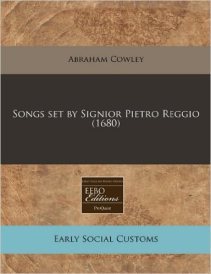
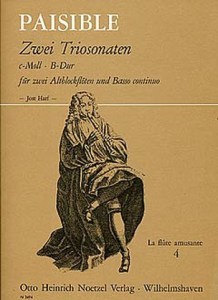
![House+cover+front[2]](https://i.gr-assets.com/images/S/compressed.photo.goodreads.com/hostedimages/1438161678i/15671403.jpg)
